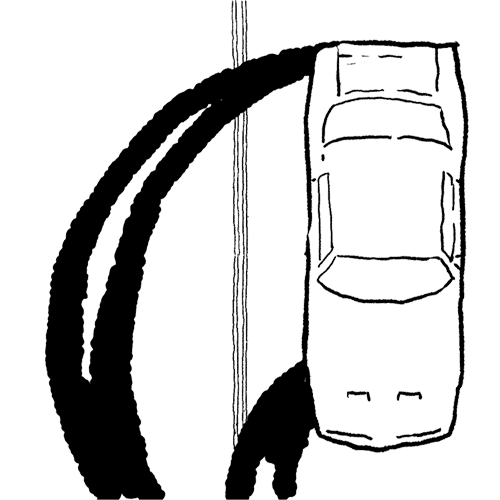Inside Out

Philosopher, Explain Thyself
I’m glad I didn’t like Inside Out, an emotion that’s not on the list…of Inside Out. I’m aware that this was exactly their plan. The film’s writers, after a super duper buncha research, landed on the Basic Emotions school. This is a real (with the emphasis on ‘in no way based in reality’) discipline, that our feelings can be broken down into a small number of basic ones, in this case Joy, Sadness, Anger, Disgust and Fear. Such listing, a word that recalls the instability of a ship, now puts this school in the category of other classic academic trolls like Marxism, Evolutionary Psychology, Feminist discourse after 1990, and anyone who uses the word ‘discourse’. Don’t you want to just punch me? After you’ve clicked through of course.

But like the website that promises us The Best Films With People In Them, or Top Five Objects in a Perceptual Realm, we don’t seek the promise so much as the controversy. Our academic counterparts want us to ask ‘where’s my favorite emotion?’ and so on. And certainly I could go that route, being that our adorable moppet being ruled in this film by Joy and Co.., would durst not experience guilt or shame. They may be the building blocks of civilization and social interaction, but they’re totally yucky, and we wouldn’t want our children, watching the film or otherwise, to experience the yucky.
Godammit, fell right into that.

I had been in France long enough that I thought that Vice Versa was the actual title, only afterwards realizing had been changed by some Académie française muckity-muck to a less interesting, off point and, as usual. in English, title.
Back to the original point: what’s interesting is how much this cobbled together and tautological nonsense mirrors lazy screenwriting. The proof, despite the fact that everyone else liked it, is that I was generally bored throughout. Don’t get me wrong, Ms. Amy Poehler is nothing short of astonishing, one of the great vocal only performances of all time. Furthermore, and despite me being me, I confess to some nice moments that work within the film. The way in which dreams are constructed, though unfulfilled, are at least fun and involve a scary clown. Plus if you don’t cry when her imaginary friend sacrifices himself, you don’t, you know, have any Sadness in charge of the control center that can also shut down and destroy islands unless it wants to make them by taking the train of thought into the second dimension.
And that’s my problem. Not that Naked Lunch didn’t make the list (come to think of it, that may be an emotion), but that these half-brained theories, like lazy constructs of character and setting, require constant shoring up with new and improbable ideas. Sadness, a classic post-2000 movie character if there ever was one, is motivated by ‘I don’t know’. That’s an actual quote, which she says a lot in response to ‘Why did you do that?’ The existence of these emotions not only fails explain anything, but winds up having to construct all sorts of other aspects of personality, control panels, memory vacuums, and floating islands of categorized experience which seemingly are under constant threat of being utterly destroyed, until they simply get rebuilt instantly. Sigh.
This near Freudian slipperiness (want something? Of course you do! Don’t want something? You’re repressed!) is best summed up by the ending which presents all the alternate characters inner workings. In an especially odd moment, one character has all his emotions be angry. In other words, your emotions can feel any…emotion. Well, that solves the problem of having to think about human motivation with any depth, I mean clears things up completely.
What this means, in a pure science-fiction genre experience, is unreliability. As this universe constantly redefines itself, there remains nothing to root for. Sadness and Joy fight over a memory ball and fall into the depths of consciousness and have to ride the train of thought back. We relate, vaguely, to the aspect of these characters being lost, even though the world through which they must navigate is constantly refined and convenientized. In the meanwhile, is our moppet incapable of either emotion during that time? What’s the real life equivalent of that?
Here’s some other questions: when the train of thought fails into the abyss of forgetting, how is it that she’s not plunged into full‑blown psychosis? Rules. If you don’t need them in psychology, you don’t need them in movies.
There’s an especially odd moment near the end when The Console starts to close down, and not let our little emotions take charge again. From a movie point of view I get it: threat, ill-defined and convenient. Something bad is going to happen! Now it isn’t! But what were the consequences of this event for the moppet in question? Was she going to go psychotic? Sociopathic? Though a cool concept (and possibly something the old Pixar might have tried), such moments don’t have a lot of weight because there’s no real life equivalent, either within or without the characters.
But I get it, the appeal of both the film and the concept. This is how we see ourselves, what another set of theorists, who are way better than the first set, call folk emotions. We are victims of the vicissitudes of ‘I don’t know’. Sometimes we’re sad. Sometimes we’re angry. But, like pedestrian characterizations, there’s a deeper movie problem here. These are excuses. We are not responsible for our actions, but mere puppets of adorable characterizations. Guilt may be yucky, and it may not even exist any more, but consequence is vital for choice, and choice is the engine of story-telling.
Godammit, I fell for it again. Funny thing though. There isn’t a word for that, my wanting to be right. And this is the fatal weakness for all these theories: they fail to explain themselves, they’re own desire to be. As coda, let’s make that our yardstick. If something claims that it knows why things happen, it has to know why it did. Maybe it’s afraid to look at itself too closely.
Well, they got one right.
$3.16
The Lonely Comments Section

 [logo]
[logo]
